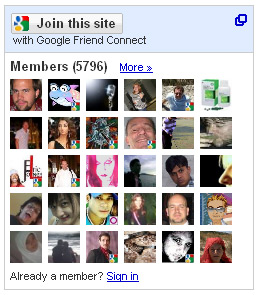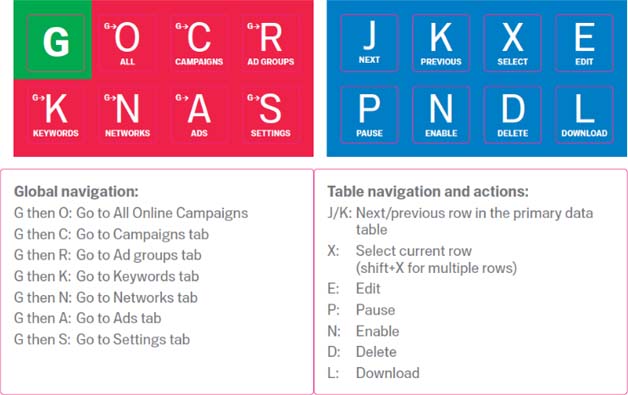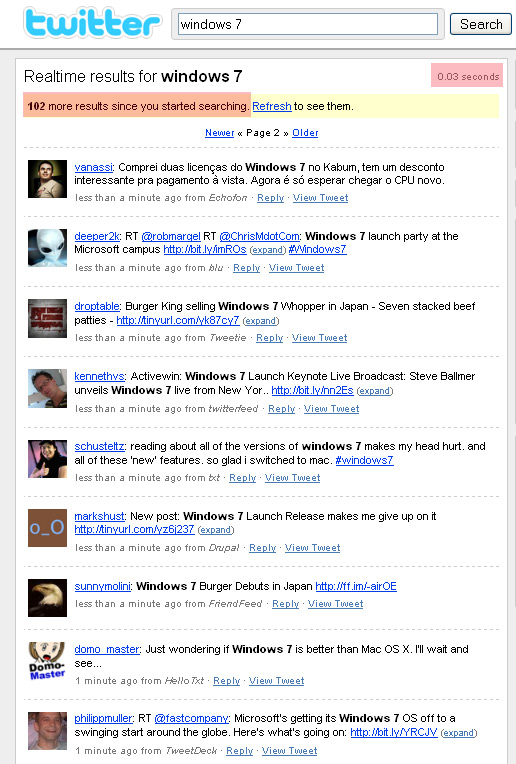Google and Microsoft have both inked deals with Twitter and Microsoft has also inked one with Facebook to integrate Twitter and Facebook updates into Bing search results. Google will be adding tweets to search results.
Google's Marissa Mayer says, " We believe that our search results and user experience will greatly benefit from the inclusion of this up-to-the-minute data, and we look forward to having a product that showcases how tweets can make search better in the coming months. That way, the next time you search for something that can be aided by a real-time observation, say, snow conditions at your favorite ski resort, you'll find tweets from other users who are there and sharing the latest and greatest information."
There is a good chance that Google will be making a similar deal with Facebook, but even if they don't, their deal with Twitter and Bing's deals with both make it all the more important for marketers to be found in real-time searches and Facebook/Twitter in general.
A while back WebProNews compiled a list of five tips for getting found in real-time searches, which basically boils down to staying in the conversation for relevant topics that people are searching for. The tips were:
1. Use keywords
2. Talk about timely events
3. Have a lot of followers
4. Promote conversation
5. Include calls to engagement
I elaborated on each of these in the previous articles. Social media is viral by nature, and real-time search is nothing more than putting things in chronological order. You have to keep people talking to stay relevant "right now."
That said, we don't know
all the details about how Google and Bing will be integrating its Twitter and Facebook results into the rest of their results yet. Bing has made available a
beta tool for people to mess around with for searching tweets with the search engine. "You can now search for what people are saying all over the web about breaking news topics, your favorite celebrity, hometown sports team, and anything else you use Twitter to stay on top of today,"
says Paul Yiu of Bing's Social Search team.

The new Twitter developments in Bing include:
- A real-time index of the Tweets that match your search queries in results. This feature makes it easier to follow what’s going on by reducing the amount of duplicates, spam, and adult content.
- Giving you the option to rank tweets either by most recent or by “best match,” where we consider a Tweeter’s popularity, interestingness of the tweet, and other indicators of quality and trustworthiness.
- Providing the top links shared on Twitter around your specific search query by showcasing a few of the most relevant tweets. Additionally, Bing automatically expands those small URLs (like bit.ly) to enable you to understand what people are tweeting about. Instead of showing standard search result captions, we select 2 top tweets to give users a glimpse of the sentiment around the shared link.
Bing already displays some Tweets for certain people results at the very top of the regular web search results page. That's a good place to appear.
Google announced a new Google labs project that
injects social media into its own search results. This was also announced at the Web 2.0 Summit. Ben Parr with Mashable
has the details from Mayer:
- The bottom of search results will soon have social networking information from your friends, like their Flickr (Flickr) photos or their status updates. It’s a blended search integration, similar to seeing news or image results.
- These are pulled from social networks connected to your Google Profile. The more that are connected, the more social information that will appear in search results.
- They have also improved searching for images using social networks. Images become more relevant using social networking data.
- It will launch in Google Labs in the next few weeks.
The deals with Microsoft and Google make social media marketing all the more important to marketing in general, and specifically search engine marketing. Where social media has generally fit into the SEO equation thus far, has been the promotion of content, which inspires links and conversation, which can in turn help search engine rankings.
Now, if status updates and tweets become directly integrated into search results in Universal Search-type fashion, it will be not only be about promotion and outside links, it will be about direct exposure right in the results, not unlike
the importance of online video right now (as you're probably aware, videos are often displayed prominently on the first page of Google results).
Now, forgetting about Google for a moment, pretend that the deals with Microsoft are the only ones that happened. You may also recall that Microsoft has a certain deal in the works with Yahoo. This (if everything goes according to plan) will see Bing results taking over Yahoo's own. Yahoo may still be controlling the front-end of its search, but Bing will be controlling the back-end. Ranking for Bing will mean ranking for Yahoo.
So with Yahoo, Twitter, and Facebook deals all in place for Bing, getting found in real-time searches may not only mean getting found in Twitter searches, Facebook searches, and such. It may also mean getting found in Bing searches
and in Yahoo searches. That's pretty much the meat of the non-Google U.S. search market.
Now let's bring Google back into the equation. It has a deal with Twitter and may very well have one with Facebook before long. Kara Swisher who broke the news about Microsoft's deals says Google's been talking with both social networks. Still think real-time search and social media are not worth your time?


 "You can later add or remove permissions for the visitor from the WordPress site administration pages,"
"You can later add or remove permissions for the visitor from the WordPress site administration pages," 

















